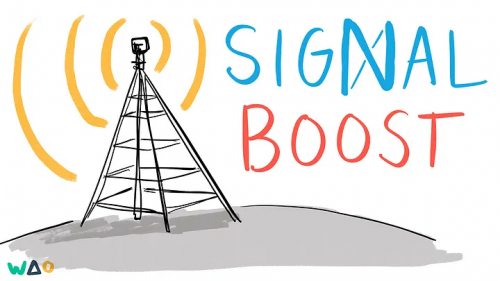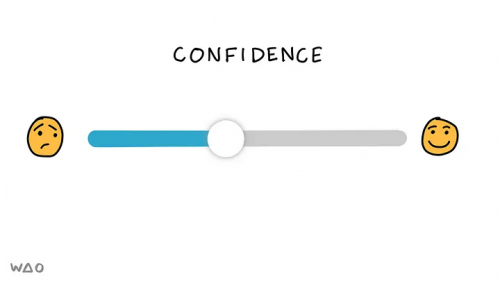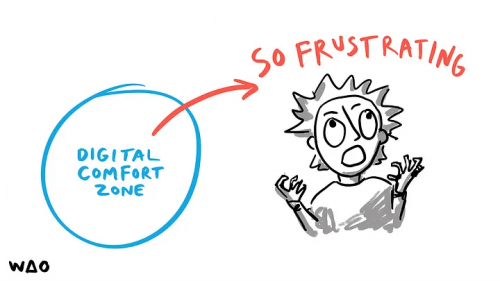Part 2: You’re not nervous, you’re excited!
Earlier this year, we worked with Change.org to help staff members develop memorable workshops, sessions and keynotes for an organisational gathering. Check out part 1: Preparing for your session.
This post looks at how to run a great session and how to recover and follow-up once your session is over. We’ll also get into general tips. Like our first post, we’ve pulled out the key questions you can ask yourself to help you prepare.
Running your session
Speaking and Facilitation: Tips & Tricks: Part 3 (slides)
Start as you mean to go on, as they say. In order to create a positive atmosphere, be an enlarged version of yourself. If you’re funny, make people laugh. If you’re not, at least try to put people at their ease as best you can! That can be as simple as smiling :)
At the start of your session

There may be someone in the room in which you’re going to be running your session immediately before you. If the event planners did their job well, however, you will have at least a few minutes to get set up. If you feel like you’re rushing, just ask everyone to get acquainted with the person next to them.
Even if there’s a tech person on hand, don’t assume that everything is set up to your liking. Check the remotes. Check that the fonts on the slides you sent through look correct. Check the microphone works. Check everything. Twice.

Aristotle famously said that we become brave by acting like a brave person. If you smile, everyone assumes that you are confident and are enjoying the experience. Smiling is particularly infectious, so smile away at people as they arrive. Just not in a scary way.
Some questions to reflect on:
- What can you do to get set up or prepared even before you enter the room?
- Have you got a backup copy of your slide deck? Could you run the session without them?
- What kind of questions can you ask people as they arrive which will make them feel welcome?
- What’s the worst that can happen?
- If you’ve used a link shortener, have you checked it isn’t blocked on the event wifi?
During your session
Sessions at events can be a rollercoaster of emotions and energy, both for the whoever is leading the session (you!) and the audience/participants.

Preparation is important, but so is delivery, so make sure people and ideas have time to ‘breathe’. Mix up the pace of the session to keep it interesting. Even if you practise, it’s easy to run over due to people arriving late, a question derailing your flow, or just you being over-enthusiastic about a particular section. Keep track of timings using your watch, phone, or presenter display. Bonus points for vibrating alarms, etc.
Questions to think about:
- Have you left enough time for questions?
- Can you think of questions you are expecting to get and can prepare for?
- Are there easy analogies you can use from everyday life?
- Did you know that audience members with a ‘concentration face’ can also look like them frowning?
- When people read they tend to use a monotone voice — have you practised modulating your voice (making it go up and down, faster and slower) to make it more interesting to listen to?

At the end of your session
Just because you’ve informed your audience of the link to the slide deck once doesn’t mean that you shouldn’t do it again. Especially as they’ve now seen how good it is. Ensure it’s on the screen at the end of your session for a good while.
Questions to prepare you for the end:
- Can you make the link to your slides and agenda as easy to access as possible by ensuring there are no ambiguous characters (e.g. l vs 1)?
- Do you want to add your social media details to these resources as well? Which one(s)?
- Are there particular ‘rabbit holes’ that people tend to want to go down with the topic of your session?
Recovering from sessions
Speaking and Facilitation: Tips & Tricks: Part 4 (slides)

Congratulations! Your session is over and it’s time to relax a little. Instead of flopping into a heap in the corner or hitting the bar, take steps to look after yourself. Spending time outside, following-up with interesting people, and eating/drinking the right things are all ways to refresh your mind, body, and soul!
Don’t forget to take a moment to breathe and ask yourself these questions while you’re preparing:
- Are there spaces outside you can be by yourself for a while? (especially if you’re an introvert)
- Can you take food and drink into the room you’re running your session?
- What are you going to reward yourself with?
- How can you make it so that people who missed your session can almost feel like they participated?
- Is it worth putting your out of office autoresponder on during the event?
- What does a minimum viable blog post look like for you?
General Tips
Speaking and Facilitation: Tips & Tricks: Part 5

When you attend events and conferences you should work to promote engagement. It helps everyone have a better time. Ask questions! Sometimes you’ve got all of the answers and you’re bestowing your wisdom. More often, you’re exploring an area, sharing your experience, and asking questions for your colleagues to grapple with along with you.
Remember nothing is irrelevant and you should share openly. The things that you find boring and mundane such as how you set something up or the problems you had recruiting someone to do X can be fascinating and gold dust to other people. So mention them! You can go into more detail in the Q&A if asked.
People aren’t coming to your session because you’re a huge rockstar and they want to bask in your glory. Or maybe they are. Either way, your job is to help them with the things they are facing in their life, thanks to your insights.

Final question to have an epic presentation: If you step into the shoes of your audience, what could you add / remove / modify?
We hope these couple of posts have helped you feel prepared for your next big workshop, talk, session or presentation. If you’re looking for more guidance or have any questions, do feel free to get in touch!